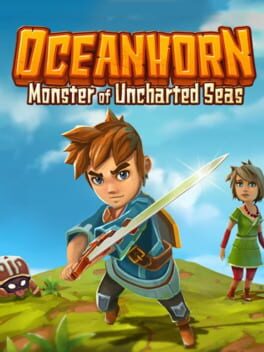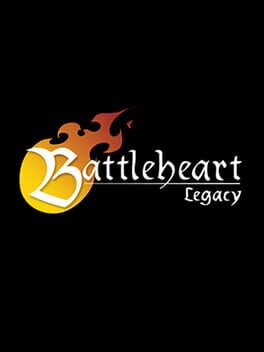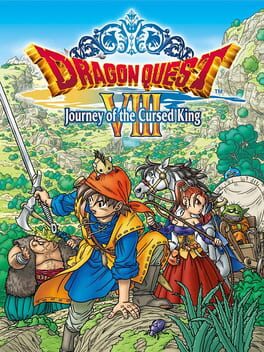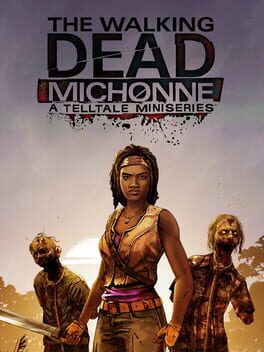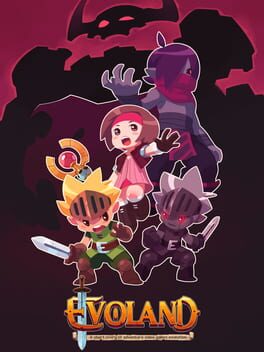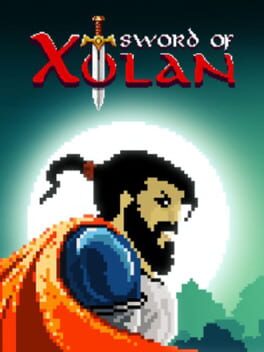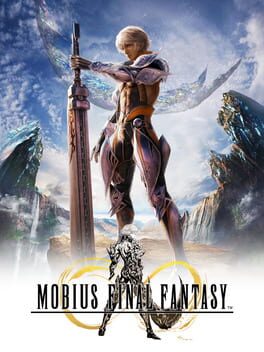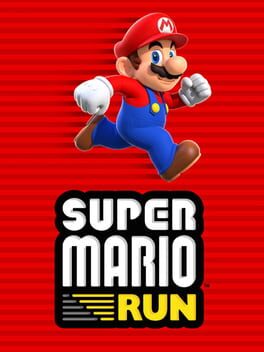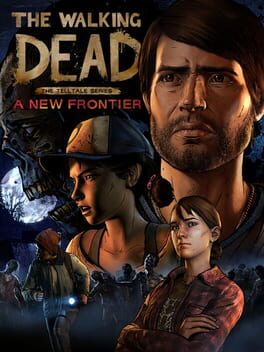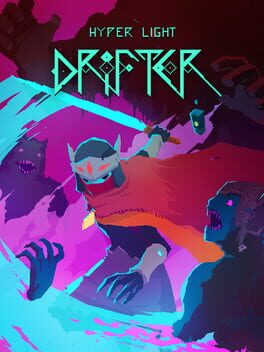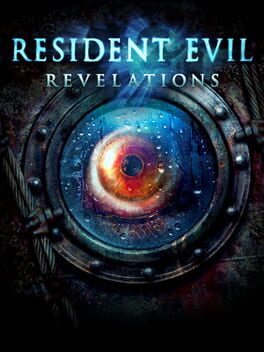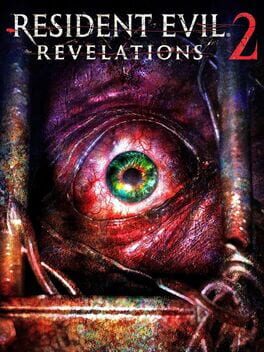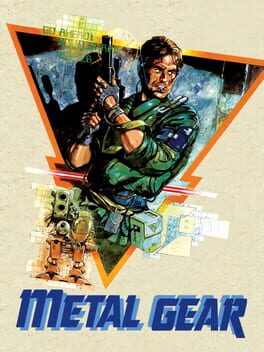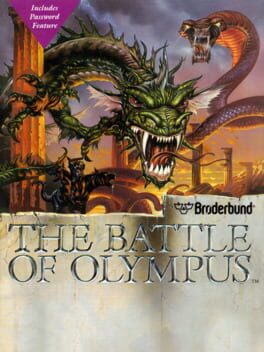novalin
2013
This review contains spoilers
On the surface Oceanhorn: Monster of Uncharted Seas is a Zelda clone, but unfortunately it feels like our newborn clone came out of the lab a little too early and with only a fraction of the charm and complexity that we all come to expect from the Zelda series. Simply put, it's a watered down version. Let's take a closer look at the various elements that make up this game and examine where it feels flat (warning, some spoilers ahead):
Story
The game begins with the main character's father leaving to battle the ancient monster known as Oceanhorn and ends with father and son reuniting. The relationship between father and son, while cliche, is an obvious opportunity for interesting story telling, and Oceanhorn completely fails to write their story to be any more than 'dad leaves, son finds him and defeats monster, both are together again'. Seriously, it's that simple. You won't find any emotion in either of these characters, or any of the hollow characters in this game for that matter. For example, the son could have had a complicated daddy complex, thinking that his father abandoned him, with dad's sudden disappearance being misunderstood. Instead we have a father that left to fight a monster, leaving a clear journal behind (no mysteries here) and when they are reunited the dad just spews out some light history of the world instead of exhibiting any ounce of emotion. What we have here is a very generic, linear story with our hero catching up to his dad and defeating a big monster.
The overarching story is that the world is not what it used to be and the only way it can be restored is to defeat Oceanhorn. Yet, other than the aquatic half-human half-fish people who claim the open sea is too dangerous for them to swim out in, everyone seems very normal and extremely happy in the game, hardly a group of oppressed people in a dark world. The town people freely wander about their island, run shops, and even hold a joyous festival. Boats pass you in the open sea and relay cheerful messages in your direction as you sail past them. It's almost as if the person that wrote the primary story and history for the game forgot to coordinate with the person that wrote the character dialogue and events.
Gameplay & Controls
The controls were relatively easy to get used to, and with the exception of sometimes directing my character slightly in the wrong direction I found them to be fairly seamless. And the controls are pretty basic, primarily consisting of moving the character, an action button (attack, grab, talk, etc.) and a secondary action such as your shield or bombs.
The battles between common enemies become repetitive very quickly and require little to no tactics: you swing your sword or you throw an object at them.
The world is comprised of a series of islands which are fragmented by open water. The player uses a small sailboat to traverse between the regions, and during travel some bombs and enemies occasionally (and in a very formulaic way) appear straight ahead of the player, which must be blasted out of the way with a pea-shooter. The process of traveling between islands, something that could have included interesting quests and moments of exploration, is instead filtered down into a boring mini-game that the player is forced to repeat over and over.
Enemies
At a point in the game I earned an achievement for having seen all of the enemies, and usually when I get an achievement I momentarily feel a sense of satisfaction, but in this case I instead felt a great disappointment, thinking to myself "really, that's the last unique enemy I'm going to see in this game?" With only a handful of baddies the world felt rather small and uneventful, and with their limited AI I often felt like I was fighting only two enemies the whole game: the ones that charge directly at me and the ones that zigzag a little then charge at me.
There are four or five boss battles, all with a winning strategy that is discovered rather quickly. Toss bottles at this guy, block lasers with your shield against that guy...you get the point. The boss fights aren't terrible, they just aren't very fun or interesting either, and are yet another missed opportunity in this game.
Items & Weapons
The weapons in Oceanhorn are what make for the most similarities to Zelda (arrows, bombs, and even a sword that shoots magic when your hearts are full), not to mention other cloned items such as quarter heart pieces you collect to make a full heart container.
One strange item worth noting is a flute that you receive near the end of the game. The item itself isn't strange, but rather the odd way it is just thrown into the game is what really felt odd and lazy. The flute is in the final dungeon, sitting out in the open, on a narrow pathway that the player has to pass through. It really feels like the developers decided to add in the item after they had already fully planned out and started to develop the environments. In other words, it is as if the developers had this conversation:
Developer 1: "What if we have a flute that the player has to use in order to control the monster at the end?"
Developer 2: "But where can we put it? I already finished all of the levels. I will need to build out a new puzzle, add a chest for it, or maybe create some extra story and instruction for finding it."
Developer 1: "Naw, just drop it right in the open on the final path to the final boss so the player just awkwardly and forcefully picks it up with no build up, discovery, or challenge whatsoever."
Following the theme of content that isn't quite fully thought out are the coins that are collected by chopping down bushes, defeating enemies, or discovered in treasure chests. Coins (or a like form of currency) are extremely common in RPGs and usually provide for some added depth and customization, allowing players to purchase upgrades, refill items, unlock rare content, bribe guards, or change the appearance of a character. But in Oceanhorn instead you get only one shop with many near useless items and only one item worth purchasing, which is a heart container. Why would I spend coins on a potion that immediately refills my health or mana when I can quickly refill them by slashing down a couple of bushes next to the shop? Instead, a useful, similar item would be health and mana potions I can carry with me and use at a later time, such as when I am battling a boss and am in desperate need of a refill. In the end I had over a thousand spare coins and nothing interesting to spend them on, making me feel as if the time I took seeking out the various chests in the game was rather pointless.
Town
There is one town in Oceanhorn, consisting of one shop, some houses, people milling about, and some dungeon elements. This is where I expected to gather side quests and missions, the content meat that fits snugly between the bread that is the story arc. Fitting with the lacking content theme of this game I became rather displeased upon the realization that there is basically only one side quest in the entire game, and it is to collect red rocks to be later returned for a single prize. I enjoyed seeking out the red items, which forced me to fully explore each environment, but of course wished to see additional quests.
Dungeons & Puzzles
The dungeons and puzzles are both repetitive and predictable, only increasing in complexity or difficulty in a few select places. Most puzzles consisted of stepping on a button (or placing an object on a button) which opened a nearby door. I did this same, lame "puzzle" so many times that I would walk into a room and hope that this is going to finally be the point where something unusual happens, but it just never came. Instead I would approach a puzzle and even for the ones that were slightly more complicated than the typical button press were usually so simple that the instant resolution that popped in my head was always the correct, and simple, solution. In the end there were zero thought-provoking puzzles, and referring to them as puzzles is an injustice. The massively unfortunate part is that the mechanics needed for generating more interesting challenges were already present in this game, so the primary blame, in my eyes, is on the designers that did not take enough advantage of the tools available. For example, some puzzles involved the player pushing a box aside to reach the other side, and in almost every case the player had to only push one box to get past. Why not have the player push multiple boxes in a unique combination in order to reach their goal? And with a little extra work the puzzles could have been greatly expanded, such as actually making a puzzle-tied use for the freeze spell, which was something I earned in the game and never used (literally never).
Difficulty
Combine the simple puzzles, easy combat system, and straight forward story and you have a very easy game. A player can refill his or her hearts with ease by breaking a few bottles or cutting down some bushes (which are everywhere) and losing to an enemy is a rarity that should only occur when a player is looking up from their iPhone to glance at the real world.
Summary
Overall, Oceanhorn feels rushed and simplistic. While it has the framework of a good game it came up short due to a lack of content, a lackluster story, and predictable elements throughout. The fact that this game borrows so many core elements from Zelda is not the reason why this game fell short for me, as I was actually excited to play something Zelda like on my iPhone, but rather the laziness that this game embodies ruins what otherwise is a decently structured game with a poor execution.
Story
The game begins with the main character's father leaving to battle the ancient monster known as Oceanhorn and ends with father and son reuniting. The relationship between father and son, while cliche, is an obvious opportunity for interesting story telling, and Oceanhorn completely fails to write their story to be any more than 'dad leaves, son finds him and defeats monster, both are together again'. Seriously, it's that simple. You won't find any emotion in either of these characters, or any of the hollow characters in this game for that matter. For example, the son could have had a complicated daddy complex, thinking that his father abandoned him, with dad's sudden disappearance being misunderstood. Instead we have a father that left to fight a monster, leaving a clear journal behind (no mysteries here) and when they are reunited the dad just spews out some light history of the world instead of exhibiting any ounce of emotion. What we have here is a very generic, linear story with our hero catching up to his dad and defeating a big monster.
The overarching story is that the world is not what it used to be and the only way it can be restored is to defeat Oceanhorn. Yet, other than the aquatic half-human half-fish people who claim the open sea is too dangerous for them to swim out in, everyone seems very normal and extremely happy in the game, hardly a group of oppressed people in a dark world. The town people freely wander about their island, run shops, and even hold a joyous festival. Boats pass you in the open sea and relay cheerful messages in your direction as you sail past them. It's almost as if the person that wrote the primary story and history for the game forgot to coordinate with the person that wrote the character dialogue and events.
Gameplay & Controls
The controls were relatively easy to get used to, and with the exception of sometimes directing my character slightly in the wrong direction I found them to be fairly seamless. And the controls are pretty basic, primarily consisting of moving the character, an action button (attack, grab, talk, etc.) and a secondary action such as your shield or bombs.
The battles between common enemies become repetitive very quickly and require little to no tactics: you swing your sword or you throw an object at them.
The world is comprised of a series of islands which are fragmented by open water. The player uses a small sailboat to traverse between the regions, and during travel some bombs and enemies occasionally (and in a very formulaic way) appear straight ahead of the player, which must be blasted out of the way with a pea-shooter. The process of traveling between islands, something that could have included interesting quests and moments of exploration, is instead filtered down into a boring mini-game that the player is forced to repeat over and over.
Enemies
At a point in the game I earned an achievement for having seen all of the enemies, and usually when I get an achievement I momentarily feel a sense of satisfaction, but in this case I instead felt a great disappointment, thinking to myself "really, that's the last unique enemy I'm going to see in this game?" With only a handful of baddies the world felt rather small and uneventful, and with their limited AI I often felt like I was fighting only two enemies the whole game: the ones that charge directly at me and the ones that zigzag a little then charge at me.
There are four or five boss battles, all with a winning strategy that is discovered rather quickly. Toss bottles at this guy, block lasers with your shield against that guy...you get the point. The boss fights aren't terrible, they just aren't very fun or interesting either, and are yet another missed opportunity in this game.
Items & Weapons
The weapons in Oceanhorn are what make for the most similarities to Zelda (arrows, bombs, and even a sword that shoots magic when your hearts are full), not to mention other cloned items such as quarter heart pieces you collect to make a full heart container.
One strange item worth noting is a flute that you receive near the end of the game. The item itself isn't strange, but rather the odd way it is just thrown into the game is what really felt odd and lazy. The flute is in the final dungeon, sitting out in the open, on a narrow pathway that the player has to pass through. It really feels like the developers decided to add in the item after they had already fully planned out and started to develop the environments. In other words, it is as if the developers had this conversation:
Developer 1: "What if we have a flute that the player has to use in order to control the monster at the end?"
Developer 2: "But where can we put it? I already finished all of the levels. I will need to build out a new puzzle, add a chest for it, or maybe create some extra story and instruction for finding it."
Developer 1: "Naw, just drop it right in the open on the final path to the final boss so the player just awkwardly and forcefully picks it up with no build up, discovery, or challenge whatsoever."
Following the theme of content that isn't quite fully thought out are the coins that are collected by chopping down bushes, defeating enemies, or discovered in treasure chests. Coins (or a like form of currency) are extremely common in RPGs and usually provide for some added depth and customization, allowing players to purchase upgrades, refill items, unlock rare content, bribe guards, or change the appearance of a character. But in Oceanhorn instead you get only one shop with many near useless items and only one item worth purchasing, which is a heart container. Why would I spend coins on a potion that immediately refills my health or mana when I can quickly refill them by slashing down a couple of bushes next to the shop? Instead, a useful, similar item would be health and mana potions I can carry with me and use at a later time, such as when I am battling a boss and am in desperate need of a refill. In the end I had over a thousand spare coins and nothing interesting to spend them on, making me feel as if the time I took seeking out the various chests in the game was rather pointless.
Town
There is one town in Oceanhorn, consisting of one shop, some houses, people milling about, and some dungeon elements. This is where I expected to gather side quests and missions, the content meat that fits snugly between the bread that is the story arc. Fitting with the lacking content theme of this game I became rather displeased upon the realization that there is basically only one side quest in the entire game, and it is to collect red rocks to be later returned for a single prize. I enjoyed seeking out the red items, which forced me to fully explore each environment, but of course wished to see additional quests.
Dungeons & Puzzles
The dungeons and puzzles are both repetitive and predictable, only increasing in complexity or difficulty in a few select places. Most puzzles consisted of stepping on a button (or placing an object on a button) which opened a nearby door. I did this same, lame "puzzle" so many times that I would walk into a room and hope that this is going to finally be the point where something unusual happens, but it just never came. Instead I would approach a puzzle and even for the ones that were slightly more complicated than the typical button press were usually so simple that the instant resolution that popped in my head was always the correct, and simple, solution. In the end there were zero thought-provoking puzzles, and referring to them as puzzles is an injustice. The massively unfortunate part is that the mechanics needed for generating more interesting challenges were already present in this game, so the primary blame, in my eyes, is on the designers that did not take enough advantage of the tools available. For example, some puzzles involved the player pushing a box aside to reach the other side, and in almost every case the player had to only push one box to get past. Why not have the player push multiple boxes in a unique combination in order to reach their goal? And with a little extra work the puzzles could have been greatly expanded, such as actually making a puzzle-tied use for the freeze spell, which was something I earned in the game and never used (literally never).
Difficulty
Combine the simple puzzles, easy combat system, and straight forward story and you have a very easy game. A player can refill his or her hearts with ease by breaking a few bottles or cutting down some bushes (which are everywhere) and losing to an enemy is a rarity that should only occur when a player is looking up from their iPhone to glance at the real world.
Summary
Overall, Oceanhorn feels rushed and simplistic. While it has the framework of a good game it came up short due to a lack of content, a lackluster story, and predictable elements throughout. The fact that this game borrows so many core elements from Zelda is not the reason why this game fell short for me, as I was actually excited to play something Zelda like on my iPhone, but rather the laziness that this game embodies ruins what otherwise is a decently structured game with a poor execution.
2014
Battleheart Legacy is a fun, action RPG, dungeon crawler, filled with campy humor, clean visuals, and interesting layers, but with some missed opportunities.
Gameplay & Combat
As with many RPGs, you can customize your equipment layout in order to maximize your skill set, such as by equipping weapons and armor that raise intelligence for spell casting. You aren't forced to pick a specific class, such as rogue or bard, and can actually mix skills from various classes to make for interesting battle combinations. At first I dabbled in a variety of classes and skills, in order to feel them out. My focus eventually was on the ranger class, with supporting skills mainly from the bard (charm) and necromancer (skeleton minions).
The battle system is seamless and easy to learn. Details like being able to queue up your next ability while your current ability is being initiated allows for a smooth combat experience.
However, combat becomes quite repetitive after a while. At first, a new combination of skills and fighting new enemies makes for a dynamic battle, but once you settle into your favorite skills and have learned how enemies behave, the battles get stale and formulaic.
Progression
The biggest issue with this game is the lack of activity and content starting around level 18, which left me attempting dungeons prematurely and battling in the arena with little success. I found myself slowly grinding to gain experience, replaying previous dungeons or getting smashed in high level ones. And this process carried on until the very end of the game. With just a little more content sprinkled in from level 18-30 the game could be infinitely more enjoyable, as it would maintain the steady cadence that the first half of the game provides.
When you traverse the world map, you sometimes get drawn into random encounters. Unfortunately the enemies do not scale in terms of difficulty, so you will quickly be one-hitting baddies. Having scalable world map battles would also help solve for the lack of content in the latter half of the game that I mentioned above.
Story
There's not much story in this game; Don't expect to see a complex backstory to accompany our hero. In fact, don't expect any backstory, and don't expect him to be much of a hero either. There is some information here and there about the kingdom and history, but it's incredibly minimal. Overall, the major lack of story is a huge, missed opportunity.
The only character defining elements in this game are the moments when you have the option to be nice or mean, which can translate to a sassy response or killing a stranger begging for mercy.
Bugs & Suggestions
The enemy and hero fire VFX and wolf look identical, so I often confused them (i.e. am I standing in enemy fire that hurt me or my fire that only hurts the enemy? Is that wolf my minion or an enemy?). It would be nice if, for example, my wolf was a different colored skin so that I could differentiate in chaotic battles.
At one point I ran into an invisible enemy that couldn't be hurt and only attacked if targeted.
In one dungeon I came across frozen enemies that didn't fight back.
If you charm an enemy, then use intimidate, and your charmed guy gets intimidated. This could be considered by design, but feels unintentional.
If you summon a pet while one is already out, sometimes a second pet will spawn, while other times the existing pet will be healed. I'm not sure which of the two scenarios was intended here, but I'm guessing the latter.
Path finding is generally good, but I did notice a few objects that get in the way and I even got stuck behind a bush, forcing me to restart the game.
Summary
I really enjoyed this game, at least at first, and then I got frustrated when the content got thin and combat got stale. Overall, its an enjoyable title that's worth checking out, and I'm eagerly hoping for a sequel that leverages the structure that has been created here, but with more content and preferably some story as well.
Gameplay & Combat
As with many RPGs, you can customize your equipment layout in order to maximize your skill set, such as by equipping weapons and armor that raise intelligence for spell casting. You aren't forced to pick a specific class, such as rogue or bard, and can actually mix skills from various classes to make for interesting battle combinations. At first I dabbled in a variety of classes and skills, in order to feel them out. My focus eventually was on the ranger class, with supporting skills mainly from the bard (charm) and necromancer (skeleton minions).
The battle system is seamless and easy to learn. Details like being able to queue up your next ability while your current ability is being initiated allows for a smooth combat experience.
However, combat becomes quite repetitive after a while. At first, a new combination of skills and fighting new enemies makes for a dynamic battle, but once you settle into your favorite skills and have learned how enemies behave, the battles get stale and formulaic.
Progression
The biggest issue with this game is the lack of activity and content starting around level 18, which left me attempting dungeons prematurely and battling in the arena with little success. I found myself slowly grinding to gain experience, replaying previous dungeons or getting smashed in high level ones. And this process carried on until the very end of the game. With just a little more content sprinkled in from level 18-30 the game could be infinitely more enjoyable, as it would maintain the steady cadence that the first half of the game provides.
When you traverse the world map, you sometimes get drawn into random encounters. Unfortunately the enemies do not scale in terms of difficulty, so you will quickly be one-hitting baddies. Having scalable world map battles would also help solve for the lack of content in the latter half of the game that I mentioned above.
Story
There's not much story in this game; Don't expect to see a complex backstory to accompany our hero. In fact, don't expect any backstory, and don't expect him to be much of a hero either. There is some information here and there about the kingdom and history, but it's incredibly minimal. Overall, the major lack of story is a huge, missed opportunity.
The only character defining elements in this game are the moments when you have the option to be nice or mean, which can translate to a sassy response or killing a stranger begging for mercy.
Bugs & Suggestions
The enemy and hero fire VFX and wolf look identical, so I often confused them (i.e. am I standing in enemy fire that hurt me or my fire that only hurts the enemy? Is that wolf my minion or an enemy?). It would be nice if, for example, my wolf was a different colored skin so that I could differentiate in chaotic battles.
At one point I ran into an invisible enemy that couldn't be hurt and only attacked if targeted.
In one dungeon I came across frozen enemies that didn't fight back.
If you charm an enemy, then use intimidate, and your charmed guy gets intimidated. This could be considered by design, but feels unintentional.
If you summon a pet while one is already out, sometimes a second pet will spawn, while other times the existing pet will be healed. I'm not sure which of the two scenarios was intended here, but I'm guessing the latter.
Path finding is generally good, but I did notice a few objects that get in the way and I even got stuck behind a bush, forcing me to restart the game.
Summary
I really enjoyed this game, at least at first, and then I got frustrated when the content got thin and combat got stale. Overall, its an enjoyable title that's worth checking out, and I'm eagerly hoping for a sequel that leverages the structure that has been created here, but with more content and preferably some story as well.
I grew up playing Dragon Quest games (or Dragon Warrior as we knew it here in the states) on the NES, which for me and many others, was an introduction to the console world of RPGs. At the time, I had a vague understanding of dungeons and dragons, had seen fantasy movies, and had read the Hobbit, so this type of world, at this point, was already very appealing to me. But after the NES days, I never experienced the later iterations of Dragon Quest, as they somehow fell off my radar.
Fast forward to 2016, and we now have a collection of these games available on the iPhone. Many balk at the mobile price tag for this game, accustomed to 99 cent titles and modern, freemium games. What they don't realize is that this is a deep experience, packed with content that you don't get with most modern, cheap games (and unlike many modern mobile games, there isn't any in-game purchases).
I recently completed the game, and am listing out what I feel are the "good" and the "bad" of DQVIII. Of course, I am omitting critiques one would make with modern games, this being about 12 years old. However, I am including criticisms about the platform of which I experienced it on (the iPhone 6s). Lastly, be aware that there are light spoilers below, although nothing that would ruin the experience.
The Good
Epic - This is a truly epic RPG, with dozens of hours of gameplay, and a rich story that gets more complex as you progress further into your journey. If the price originally turned you away then I want to assure you that you have made a mistake.
Balanced Economy - I’ve played a number RPGs where you can too easily buy the weapons, armor, and items throughout the game. Whereas in DQVIII I found myself always short of being able to buy all of the latest gear at the newest town I passed through. This created the dynamic where I had to decide between some options: only buy a few items that appear to hold the best value and return later with more money, or sell old gear that might be usable in the alchemy pot later (a short return but not a solid investment). This type of moderate inventory and money management struggle is what makes RPGs interesting.
Travel progression - You start on foot and soon after learn to teleport to previous locations. From there, you earn a ship, which allows you to expand your search further. Next, as an optional mission, you earn a mount, allowing you to travel on ground at a faster rate. And at the point the mount is received, the distance in areas from point A to point B increases to accommodate the faster mount speed, giving the player the impression of grander exploration. Lastly, with the assistance of the mount, revising older areas is less daunting and time draining. In short, as the world continues to expand, and your explorations with it, your ability to explore in faster and more interesting ways expands with it.
Characters - The characters have unique personality traits and motivations, yet are banded together with a common goal. The group dynamic is often humorous and playful, balanced with the serious nature of the story.
Monster team - Like a light version of Pokemon, players can hunt for new monsters to defeat and recruit, create teams out of those monsters, and then use them in battles both out in the field and in the monster arena. The monster team is a great little side element that runs parallel to the main story throughout the game, by providing the player with yet another reason to explore the open environments.
Alchemy - Players combine items, weapons, and other gear together to form new items. Not only is it fun to find new recipes and discover ones through experimentation, but it also adds a layer of complexity in terms of how you upgrade your weapons and armors. In other words, instead of simply purchasing all of the best gear, I found myself saving older gear in the hopes of crafting it into something better, later on.
Skills - Skill points are gained as you level up, and can be spent to build up knowledge between various weapons, as well as some key abilities. You have to decide fairly early on which pathway you want to explore with your skill points, otherwise, you may find yourself diversifying your points too thinly, making it difficult to master something in particular. This system, like with alchemy, adds yet another layer of complexity, by encouraging the player to hold on to weapons that aren’t quite as powerful as their current, as that less powerful weapon may leapfrog over another as the associated weapon attributes are upgraded.
Animations - The animations are fun, clever, and have a fitting anime like style.
Retro audio - The original Dragon Quest was released in 1986, whereas Dragon Quest VIII was released in 2004). The decision to incorporate both modern sound effects (well, modern for the time it was released) with classic sound effects dating back to the original Dragon Quest was a nice touch.
The Bad
Crashes - All in all, by the time I completed this game it had crashed about 15 times. And considering this is on an iPhone 6s, which is a newer device than what this was originally launched on, that definitely feels too high of a count. Looking at the reviews I can tell that this is one of, if not the top reason for the negative reviews. Thankfully there is an autosave feature, which records your progress automatically, and quite frequently at that. Because of this feature I never had to replay much to get back to where I was. Surprisingly, the game handles the situation where I switch around to other apps and back rather smoothly, without crashing.
No outside music - The game doesn’t allow for the player to run music, podcasts, etc. while playing. And in today’s world, it’s fairly expected to be able to run audio in the background while playing a game on your phone. However, considering the amount of crashes experienced, I’m not surprised that the developers restricted this ability.
The music - Which brings me to the actual music in the game. While the music isn’t terrible, it isn’t particularly good either. And there isn’t much variety either.
Tactics - There are a diverse set of tactics that the player can select from, per character, for battle actions, such as “Fight Wisely”, which is the default. I struggled at first with placing tactics in the “bad” section of this review, because there is both good and bad here. Specially where I think the negatives come from with tactics is how overpowered it often felt. For example, when using “Fight Wisely”, my characters always avoided using abilities and spells that were not effective on an enemy, even if it was the first time I encountered that enemy. And when an enemy was susceptible to a particular type of attack, such as “sleep”, my characters would, like mind-readers, use that ability. Further, characters would always adapt their strategy mid-turn, something you are incapable of doing in any turn-based RPG such as these, without this type of exploit at your fingertips. For example, all of my players have full health. I elect that all of my characters “Fight Wisely”, and the enemy hits one of them severely, doing heavy damage. Then, one of the characters uses full heal on that wounded player. As you can see in this scenario, this is a switch in strategy, something I could not have done had I been executing actions in the traditional way, that makes the tactic too superior to regular decision based combat.
Free Maps - 98% of the world is detailed on a map from the very beginning. There is no purchasing of maps. There is no fog-of-war. That means that you will discover a hidden cave or ruins, long forgotten through time, something that the town’s people think of as myth…but don’t worry, because you have a full, detailed map of every room. Exploration is one of the most engaging elements of an RPG, and providing maps for unexplored areas means that a lot of the exploration elements are lost.
Gambling - Sure, it’s optional. But when you are someone like me who wants to earn the rare items of an RPG, you start to feel compelled to participate.
Final Boss - The battle was too simple, and straightforward.
Fast forward to 2016, and we now have a collection of these games available on the iPhone. Many balk at the mobile price tag for this game, accustomed to 99 cent titles and modern, freemium games. What they don't realize is that this is a deep experience, packed with content that you don't get with most modern, cheap games (and unlike many modern mobile games, there isn't any in-game purchases).
I recently completed the game, and am listing out what I feel are the "good" and the "bad" of DQVIII. Of course, I am omitting critiques one would make with modern games, this being about 12 years old. However, I am including criticisms about the platform of which I experienced it on (the iPhone 6s). Lastly, be aware that there are light spoilers below, although nothing that would ruin the experience.
The Good
Epic - This is a truly epic RPG, with dozens of hours of gameplay, and a rich story that gets more complex as you progress further into your journey. If the price originally turned you away then I want to assure you that you have made a mistake.
Balanced Economy - I’ve played a number RPGs where you can too easily buy the weapons, armor, and items throughout the game. Whereas in DQVIII I found myself always short of being able to buy all of the latest gear at the newest town I passed through. This created the dynamic where I had to decide between some options: only buy a few items that appear to hold the best value and return later with more money, or sell old gear that might be usable in the alchemy pot later (a short return but not a solid investment). This type of moderate inventory and money management struggle is what makes RPGs interesting.
Travel progression - You start on foot and soon after learn to teleport to previous locations. From there, you earn a ship, which allows you to expand your search further. Next, as an optional mission, you earn a mount, allowing you to travel on ground at a faster rate. And at the point the mount is received, the distance in areas from point A to point B increases to accommodate the faster mount speed, giving the player the impression of grander exploration. Lastly, with the assistance of the mount, revising older areas is less daunting and time draining. In short, as the world continues to expand, and your explorations with it, your ability to explore in faster and more interesting ways expands with it.
Characters - The characters have unique personality traits and motivations, yet are banded together with a common goal. The group dynamic is often humorous and playful, balanced with the serious nature of the story.
Monster team - Like a light version of Pokemon, players can hunt for new monsters to defeat and recruit, create teams out of those monsters, and then use them in battles both out in the field and in the monster arena. The monster team is a great little side element that runs parallel to the main story throughout the game, by providing the player with yet another reason to explore the open environments.
Alchemy - Players combine items, weapons, and other gear together to form new items. Not only is it fun to find new recipes and discover ones through experimentation, but it also adds a layer of complexity in terms of how you upgrade your weapons and armors. In other words, instead of simply purchasing all of the best gear, I found myself saving older gear in the hopes of crafting it into something better, later on.
Skills - Skill points are gained as you level up, and can be spent to build up knowledge between various weapons, as well as some key abilities. You have to decide fairly early on which pathway you want to explore with your skill points, otherwise, you may find yourself diversifying your points too thinly, making it difficult to master something in particular. This system, like with alchemy, adds yet another layer of complexity, by encouraging the player to hold on to weapons that aren’t quite as powerful as their current, as that less powerful weapon may leapfrog over another as the associated weapon attributes are upgraded.
Animations - The animations are fun, clever, and have a fitting anime like style.
Retro audio - The original Dragon Quest was released in 1986, whereas Dragon Quest VIII was released in 2004). The decision to incorporate both modern sound effects (well, modern for the time it was released) with classic sound effects dating back to the original Dragon Quest was a nice touch.
The Bad
Crashes - All in all, by the time I completed this game it had crashed about 15 times. And considering this is on an iPhone 6s, which is a newer device than what this was originally launched on, that definitely feels too high of a count. Looking at the reviews I can tell that this is one of, if not the top reason for the negative reviews. Thankfully there is an autosave feature, which records your progress automatically, and quite frequently at that. Because of this feature I never had to replay much to get back to where I was. Surprisingly, the game handles the situation where I switch around to other apps and back rather smoothly, without crashing.
No outside music - The game doesn’t allow for the player to run music, podcasts, etc. while playing. And in today’s world, it’s fairly expected to be able to run audio in the background while playing a game on your phone. However, considering the amount of crashes experienced, I’m not surprised that the developers restricted this ability.
The music - Which brings me to the actual music in the game. While the music isn’t terrible, it isn’t particularly good either. And there isn’t much variety either.
Tactics - There are a diverse set of tactics that the player can select from, per character, for battle actions, such as “Fight Wisely”, which is the default. I struggled at first with placing tactics in the “bad” section of this review, because there is both good and bad here. Specially where I think the negatives come from with tactics is how overpowered it often felt. For example, when using “Fight Wisely”, my characters always avoided using abilities and spells that were not effective on an enemy, even if it was the first time I encountered that enemy. And when an enemy was susceptible to a particular type of attack, such as “sleep”, my characters would, like mind-readers, use that ability. Further, characters would always adapt their strategy mid-turn, something you are incapable of doing in any turn-based RPG such as these, without this type of exploit at your fingertips. For example, all of my players have full health. I elect that all of my characters “Fight Wisely”, and the enemy hits one of them severely, doing heavy damage. Then, one of the characters uses full heal on that wounded player. As you can see in this scenario, this is a switch in strategy, something I could not have done had I been executing actions in the traditional way, that makes the tactic too superior to regular decision based combat.
Free Maps - 98% of the world is detailed on a map from the very beginning. There is no purchasing of maps. There is no fog-of-war. That means that you will discover a hidden cave or ruins, long forgotten through time, something that the town’s people think of as myth…but don’t worry, because you have a full, detailed map of every room. Exploration is one of the most engaging elements of an RPG, and providing maps for unexplored areas means that a lot of the exploration elements are lost.
Gambling - Sure, it’s optional. But when you are someone like me who wants to earn the rare items of an RPG, you start to feel compelled to participate.
Final Boss - The battle was too simple, and straightforward.
The Walking Dead: Michonne, a three episode gaming experience, is the most recent The Walking Dead edition from Telltale Games. It follows a similar structure as the previous titles, yet falls short of emulating their success primarily due being limited in time, depth, and character development.
Pros
Story: The story, although rather short, is compelling and interesting.
Music: As with the previous TWD TellTale games, the music creates an engrossing feeling of despair that is so integral to the series. And it seems, with this iteration, Telltale corrected the awkward audio level mixing (music, voices, SFX) that was often not properly leveled before.
Intro: The intro is reminiscent of a high-quality TV show, and generates a truly episodic feel.
Michonne: A deeper, closer look at one of the most interesting characters from both the comic and the show.
Cons
Short: The game, in total, across all three episodes, is incredibly short. To be fair, Telltale Games warns us of this ahead of time, to properly set expectations. Warning or not, the limited experience restricts the story from properly breathing, meaning that characters and storylines don't receive the detail, and thus, emotional connection, they deserve.
Limited Choices: The game is lacking any real sense of impactful choice, unlike the versions before it.
Animation issues: Some animations are rough around the edges and could benefit from some polish time.
No skipping: The inability to skip the teaser for “scenes from next time”, the “previously seen” edit/montage, and the end credits that follow each episode is a big let down. Consider that many players will experience all three episodes back-to-back, as I did, resulting in the edit for “next time” unnecessarily appearing when you are about to play the next episode. Whereas, compound that with that fact that “previously” is redundant, considering you literally just completed the last episode.
Summary
All in all, Michonne doesn't have the same gritty and dark feeling of previous iterations, which is mainly lacking due to the short experience that doesn't allow for true depth. The game really feels like it is about to take off right as it is ending.
Pros
Story: The story, although rather short, is compelling and interesting.
Music: As with the previous TWD TellTale games, the music creates an engrossing feeling of despair that is so integral to the series. And it seems, with this iteration, Telltale corrected the awkward audio level mixing (music, voices, SFX) that was often not properly leveled before.
Intro: The intro is reminiscent of a high-quality TV show, and generates a truly episodic feel.
Michonne: A deeper, closer look at one of the most interesting characters from both the comic and the show.
Cons
Short: The game, in total, across all three episodes, is incredibly short. To be fair, Telltale Games warns us of this ahead of time, to properly set expectations. Warning or not, the limited experience restricts the story from properly breathing, meaning that characters and storylines don't receive the detail, and thus, emotional connection, they deserve.
Limited Choices: The game is lacking any real sense of impactful choice, unlike the versions before it.
Animation issues: Some animations are rough around the edges and could benefit from some polish time.
No skipping: The inability to skip the teaser for “scenes from next time”, the “previously seen” edit/montage, and the end credits that follow each episode is a big let down. Consider that many players will experience all three episodes back-to-back, as I did, resulting in the edit for “next time” unnecessarily appearing when you are about to play the next episode. Whereas, compound that with that fact that “previously” is redundant, considering you literally just completed the last episode.
Summary
All in all, Michonne doesn't have the same gritty and dark feeling of previous iterations, which is mainly lacking due to the short experience that doesn't allow for true depth. The game really feels like it is about to take off right as it is ending.
2013
In Evoland, you experience the evolution of RPGs by frequently unlocking new features (e.g. weapons, radar, and a mini-game), technology (pre-rendered environments, 3D, colors), and design elements (e.g. puzzles, combos, and secrets). Cliches are ingrained in every moment. Yet cliches don't feel like cliches, but rather they evoke the warming sensation of nostalgia. The experience is more akin to a history lesson, or a virtual game museum, than a standard RPG, sprinkled with jokes and jabs at moments and characters made famous by games like The Legend of Zelda, Diablo, and Final Fantasy VII.
The experience is short, making this less of a complete RPG and more of a brief walk through time. Essentially, Evoland is a taste of the integral pieces that have been built over the many years. Yet the foundation is so solid it beckons for a story-driven sequel.
The experience is short, making this less of a complete RPG and more of a brief walk through time. Essentially, Evoland is a taste of the integral pieces that have been built over the many years. Yet the foundation is so solid it beckons for a story-driven sequel.
2015
2015
2016
Yes, this game is as good as the hype. Yes, the horses are a little wonky, but if that’s the biggest critique I can think of then I’m really digging for negatives. The best parts: Exploration is always rewarded, whenever I think “maybe I can…” the answer is always yes, and it’s extremely well polished. Great DLP too.
"Now I am become" Telltale, destroyer of batteries. It lacks any real improvements from the previous iterations, and still suffers from performance and audio mixing, in addition to battery draining like a energy thirsty vampire. The gameplay remains overly simplistic for my taste. The writing shines, and only occasionally suffers from “catch all” responses and animations that don’t always match with your choice in words (e.g. I just made a choice that doomed a character from finding “her baby”, and seconds later she is smiling like a smitten teen).
2016
My first exposure to Resident Evil was watching a neighbor play the original on PlayStation. At the time, even as a fan of the zombie genre, I wasn’t that intrigued. It wasn’t until the rerelease, Resident Evil: Rebirth for GameCube, found its way into my home that I finally dove into a Resident Evil game. I was hooked, and played it through a few times. I was ready to consume all things RE.
Fast forward and, after wrapping up RE4, I was caught up on all the series had to offer at the time. By the time I had the opportunity to play RE5 I had heard enough about the frustrations of the AI partner and the mixed reviews, and I decided to skip it. Then RE6 came along and snippets of info was enough to scare me away from that one. It just felt like a strange deviation from what attracted me to the series.
Once RE7 was announced I had grown eager to return. This is a game that reminded me why Resident Evil is one of my favorite series. It looked and felt amazing. The environments were truly terrifying, and I actually jumped a few times. It defined what survival horror should always be.
Which brings me to Resident Evil Revelations. Purchased for PlayStation 4, I figured I would give it a shot. Knowing nothing about it, I placed my order.
Here’s where it fell flat:
It’s far too linear, with extremely straight forward puzzles (if you can even call them that).
The episodic format is just plain annoying. Why does Capcom feel the need to interrupt action with an archaic grading system? Do we really need a “previously on...” after every short level? This isn't an arcade game.
The story frequently jumps around between characters, locations, and times haphazardly. Consequently, the story is slow and dry, and you never get to identity with any of the characters.
For survival horror, it’s missing the “horror”. Everyone is such a silly Hollywood action caricature and the monsters are so casually tossed in from the start that there is zero suspense, zero fear, and zero sense of danger.
The dialogue is cringe worthy and speckled with blatant sexism. And the women are highly sexualized in a way that is absurd.
You are hit over the head with guidance, even in the most obvious of situations, in the form of map markers and NPC chatter. This kills the sense of discovery.
Having an NPC partner adds little to the game. Enemies mostly ignore them as they fire shots that seem to do little to no damage. There is a formula that is reused throughout the game where the NPCs point you in the right direction, follow you, wait at a place you need an item to engage with, and repeat.
Ammo reappears in locations you have already been. It's an immersion killer.
The scanning mechanic is tedious. You kill an enemy and scan it, and then scan the entire room, over and over again.
This wouldn't be the first time that a Resident Evil title let me down. Zero and Outbreak were also let downs, just for different reasons.
There is a bright side to Revelations, however. At least, I think so. I just played the first hour of Revelations 2, and I'm amazed at how much of an improvement it is in so many ways. I was gripped from the start, and felt the horror that was missing in its predecessor. The team mechanics are sensible, the monsters more terrifying, and the environments are engrossing. While it still is more linear than I prefer my RE games, it gives a better sense of being free roaming. My only beef with the sequel, thus far, is that it clearly was influenced with many of the mechanics and feel of games like The Last of Us. To be fair, those mechanics weren't all original on their own, and have become commonplace. All in all, I have high hopes for this sequel.
Fast forward and, after wrapping up RE4, I was caught up on all the series had to offer at the time. By the time I had the opportunity to play RE5 I had heard enough about the frustrations of the AI partner and the mixed reviews, and I decided to skip it. Then RE6 came along and snippets of info was enough to scare me away from that one. It just felt like a strange deviation from what attracted me to the series.
Once RE7 was announced I had grown eager to return. This is a game that reminded me why Resident Evil is one of my favorite series. It looked and felt amazing. The environments were truly terrifying, and I actually jumped a few times. It defined what survival horror should always be.
Which brings me to Resident Evil Revelations. Purchased for PlayStation 4, I figured I would give it a shot. Knowing nothing about it, I placed my order.
Here’s where it fell flat:
It’s far too linear, with extremely straight forward puzzles (if you can even call them that).
The episodic format is just plain annoying. Why does Capcom feel the need to interrupt action with an archaic grading system? Do we really need a “previously on...” after every short level? This isn't an arcade game.
The story frequently jumps around between characters, locations, and times haphazardly. Consequently, the story is slow and dry, and you never get to identity with any of the characters.
For survival horror, it’s missing the “horror”. Everyone is such a silly Hollywood action caricature and the monsters are so casually tossed in from the start that there is zero suspense, zero fear, and zero sense of danger.
The dialogue is cringe worthy and speckled with blatant sexism. And the women are highly sexualized in a way that is absurd.
You are hit over the head with guidance, even in the most obvious of situations, in the form of map markers and NPC chatter. This kills the sense of discovery.
Having an NPC partner adds little to the game. Enemies mostly ignore them as they fire shots that seem to do little to no damage. There is a formula that is reused throughout the game where the NPCs point you in the right direction, follow you, wait at a place you need an item to engage with, and repeat.
Ammo reappears in locations you have already been. It's an immersion killer.
The scanning mechanic is tedious. You kill an enemy and scan it, and then scan the entire room, over and over again.
This wouldn't be the first time that a Resident Evil title let me down. Zero and Outbreak were also let downs, just for different reasons.
There is a bright side to Revelations, however. At least, I think so. I just played the first hour of Revelations 2, and I'm amazed at how much of an improvement it is in so many ways. I was gripped from the start, and felt the horror that was missing in its predecessor. The team mechanics are sensible, the monsters more terrifying, and the environments are engrossing. While it still is more linear than I prefer my RE games, it gives a better sense of being free roaming. My only beef with the sequel, thus far, is that it clearly was influenced with many of the mechanics and feel of games like The Last of Us. To be fair, those mechanics weren't all original on their own, and have become commonplace. All in all, I have high hopes for this sequel.
RER2 shines in so many places the original failed to. Compared to the original, RER2 has:
More of a sense of exploration
Some scary moments (more is better than none, right?)
Better music
Characters are much more specialized
Richer, deeper gameplay
Diversity of environments
There's no swimming mechanic anymore (thank the gods)
Overall it feels like a very different game. The biggest similarities are that you are always operating as a pair, although in the original the notion of having a teammate was a total farce. In RER2 your teammate is highly valuable, and extremely specialized. I found myself rhythmically toggling between partners in order to search, fight, and solve puzzles. There’s still a bit of the tedious nature in this dynamic, such as relying on one particular half of the pair to properly search.
There are some areas where, despite being a great game, RER2 falls a little flat:
- Inventory management is a constant chore. I found myself often going through a routine of passing ammo to the character that can use it, and freeing up space.
- While this sequel doesn’t hit you over the head with instructions as much as the original, it still does more so than it needs to. For example, I came across a brick wall with a giant X on it. When I explored it I was informed I needed a drill. And when I say explore, I mean in the non-diegetic sense whereas text appeared on screen to slap me in the face. This type of spoiler ruins that aw-ha moment you would have had when you found the drill. Allowing players to make connections is paramount to good design.
- Scanning for items with your counterparts ability, while still tedious like the scanning mechanic of this games predecessor, at least fits better into the game world. For example, using a flashlight to seek out items is a nice touch. However, constantly toggling to the flashlight character hurts the cadence of the gameplay.
- Grading, like the original, remains pointless. Unlike the original, RER2 adds a “next time” spoiler that you need to quickly skip. This isn’t a TV show and I don’t see the benefit in pretending it is.
RER2 seems to have been heavily influenced by games like The Last of Us, and mostly for the better. There’s the middle aged man and mysteriously important little girl dynamic. There’s the character that can essential wall hack. There’s stealth zombie kills. And you can sprint. Obviously TLOU didn’t invent any of these themes or mechanics, but the connection is clear.
Overall, RER2 was great fun. I was constantly engaged with the level design, characters, and themes. It still holds up fairly well today. If you are thinking of checking it out, feel free to skip Revelations 1 (just read a quick synopsis).
More of a sense of exploration
Some scary moments (more is better than none, right?)
Better music
Characters are much more specialized
Richer, deeper gameplay
Diversity of environments
There's no swimming mechanic anymore (thank the gods)
Overall it feels like a very different game. The biggest similarities are that you are always operating as a pair, although in the original the notion of having a teammate was a total farce. In RER2 your teammate is highly valuable, and extremely specialized. I found myself rhythmically toggling between partners in order to search, fight, and solve puzzles. There’s still a bit of the tedious nature in this dynamic, such as relying on one particular half of the pair to properly search.
There are some areas where, despite being a great game, RER2 falls a little flat:
- Inventory management is a constant chore. I found myself often going through a routine of passing ammo to the character that can use it, and freeing up space.
- While this sequel doesn’t hit you over the head with instructions as much as the original, it still does more so than it needs to. For example, I came across a brick wall with a giant X on it. When I explored it I was informed I needed a drill. And when I say explore, I mean in the non-diegetic sense whereas text appeared on screen to slap me in the face. This type of spoiler ruins that aw-ha moment you would have had when you found the drill. Allowing players to make connections is paramount to good design.
- Scanning for items with your counterparts ability, while still tedious like the scanning mechanic of this games predecessor, at least fits better into the game world. For example, using a flashlight to seek out items is a nice touch. However, constantly toggling to the flashlight character hurts the cadence of the gameplay.
- Grading, like the original, remains pointless. Unlike the original, RER2 adds a “next time” spoiler that you need to quickly skip. This isn’t a TV show and I don’t see the benefit in pretending it is.
RER2 seems to have been heavily influenced by games like The Last of Us, and mostly for the better. There’s the middle aged man and mysteriously important little girl dynamic. There’s the character that can essential wall hack. There’s stealth zombie kills. And you can sprint. Obviously TLOU didn’t invent any of these themes or mechanics, but the connection is clear.
Overall, RER2 was great fun. I was constantly engaged with the level design, characters, and themes. It still holds up fairly well today. If you are thinking of checking it out, feel free to skip Revelations 1 (just read a quick synopsis).
1987
As with Crystalis, I played this one end to end. I will admit I did have to look up one part online in order to progress, which was a hidden wall that you had to punch through. Having played some of the more modern Metal Gear games it was fun to go back and discover that so much of the themes were established from the very start.
You may remember this game as the knockoff to Zelda II: The Adventure of Link. It looks, plays, and feels very much like it. The big differences being that it doesn't have the power of the stories and characters from Zelda, and it lacks the overworld element as well. I played this one for a few hours and gave up.
